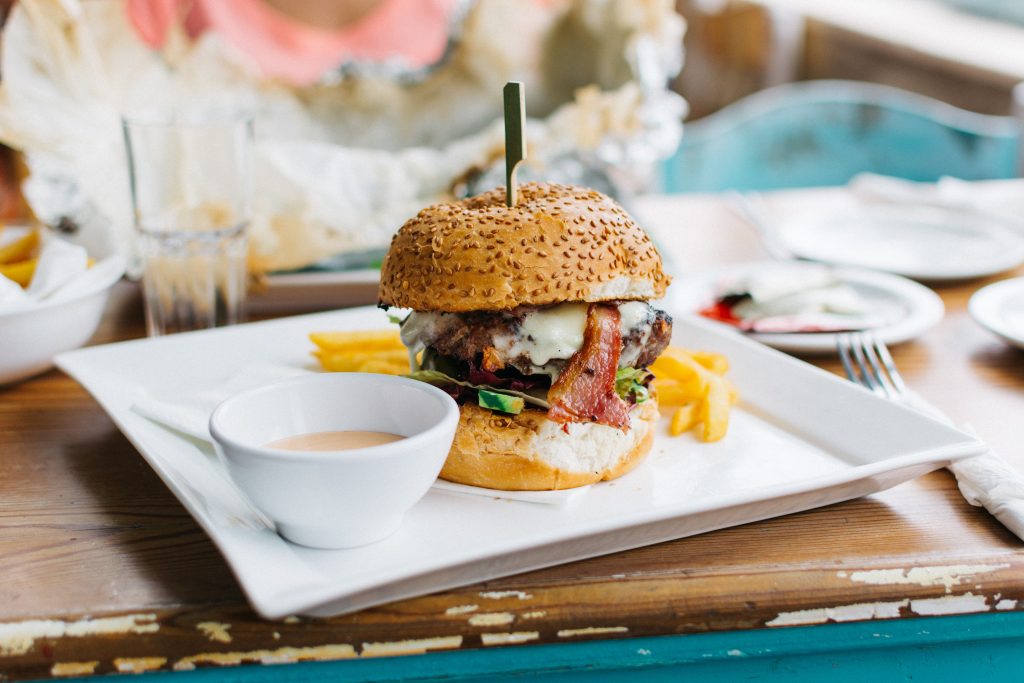Freedom, oh sweet, freedom. We’re finally living on our own (still Skyping the parents every now and then), but the world is ours! All of a sudden, we’re still responsible for attending classes, handing in assignments, cooking food, and paying bills…those dreaded bills. Student life means LOADS of studying, but it also means learning how to budget for yourself once you move away from home. Now is as good a time as any to stop spending money on what you don’t need and SAVE.
1. Coffee

How do you make a latte? You add five dollars to a normal coffee.
Coffee breaks are a great way to step back from studying, catch up with a friend, go on a date, or fuel your energy, especially if you’re not a morning person. But should you really be paying for coffee at Starbucks or Tim Hortons or Second Cup or wherever your favourite coffee addiction place is every single day? Absolutely not. Come on, people. Purchase a travel mug and make it at home. You should not be spending that much money when it costs so much less to make it in the comfort of your own home. I’m looking at you too, tea-drinkers.
Let’s break this down and say a coffee is $2 at your favourite location. That means that buying that particular coffee every day is going to cost you $62 a month. That’s a whomping $744 a year that you could be saving! And for you specialty drink lovers, that’s probably more. It’s not worth it.
Purchasing coffee from your favourite place once in a while when you are in desperate need of a pick-me-up is totally fine. Make sure you set aside a little extra cash so you can afford it and make it a treat for working hard. Buying one should not be part of your daily routine.
2. Fashion

Clothing trends are constantly changing. Don’t get caught up in what’s new this season and pay $100 for a sweater you only intend to wear for a year. Check outlet malls or sales racks when it comes to buying new clothes. Most of the clothes I purchased during my undergrad lasted through university and then I donated them. Trends aren’t timeless, but older styles tend to make a comeback. Trends from the seventies, eighties, and nineties already here. Bell-bottoms (seventies) and halter tops (nineties) can be bought at full price almost anywhere these days. Check your parents’ closet before you drop the cash on something brand new. My mom keeps her old clothes, so I usually snag a shirt that’s just come back into style from clothes she wore in her twenties.
If your parents are no help here, go for the cheaper option unless you really need to spend the money on a good pair of winter boots or a warm jacket (hello Canada, am I right?). But paying $250 for a designer purse simply because “you want it” does not qualify as a good enough reason to burn your cash when there’s a perfectly nice $50 purse already in your closet. The same applies to you gents—watches, sunglasses, and shoes (yes, we know you like shoes too), can all be costly. Save up for a special occasion to indulge but don’t make a habit out of it.
3. On-Demand

Back in the day, people had to work hard for what they wanted and even waited until retirement to purchase it. Be mindful that it may seem like a good idea to buy something right now, but when the bill comes at the end of the month, you’re likely to be having second thoughts about that purchase. If you wait until you’re more financially stable to purchase that new car or designer jacket (or something else that’s entirely-too-expensive), it makes owning it that much sweeter. If it’s not a necessity (once again, a warm jacket and good winter boots are the exception if you live in Canada), then don’t make it a priority. If those big purchase items can wait, sit on them for a little while. You might even change your mind about what you want.
4. Food

Drunk food. Fast food. Brunch dates. Study fuel. Everything tastes better when you don’t cook it yourself. Yes, it is more than okay (it’s encouraged) to indulge in these once in a while. I repeat, ONCE IN A WHILE, but learn how to budget your grocery spending. Make sure you allocate enough money for buying food you actually keep in the house. By doing this, you are less likely to spend on-the-go and more likely to bring food with you. Buying food in bulk rather than on-the-go can be healthier and more feasible, especially as a student. From here, you can learn how to meal prep and set up your meals for the week so you don’t stop for fast food or order delivery every other meal. Your wallet will definitely thank you. For information on saving money when grocery shopping, check out Nicholas Duarte’s A Student’s Guide to Grocery Shopping.
Big Takeaways:
- Make coffee or tea at home and bring it to-go. Don’t purchase it from your favourite coffee shop everyday. Instead, make it a special treat.
- Fashion trends are always changing, so don’t give in by spending hundreds of dollars on clothes that won’t stick around next year. Check out sales racks, clearance sections and good old outlet locations. Don’t forget to ask yourself, “Do I need this?”
- Food is a necessity, so yes, absolutely purchase it, but be smart about it. Ordering take out most nights is usually unhealthy and unaffordable, so head to the grocery store. Don’t forget: if you don’t need it, ditch it.
TL;DR: To sum up budgeting as a student in one easy-to-remember idea, it would be:save money for what you really need, so that when you need it, you can actually afford it.

A $50,000 student prize bundle is up for grabs.
*Opinions expressed are those of the author, and not necessarily those of Student Life Network or their partners.




